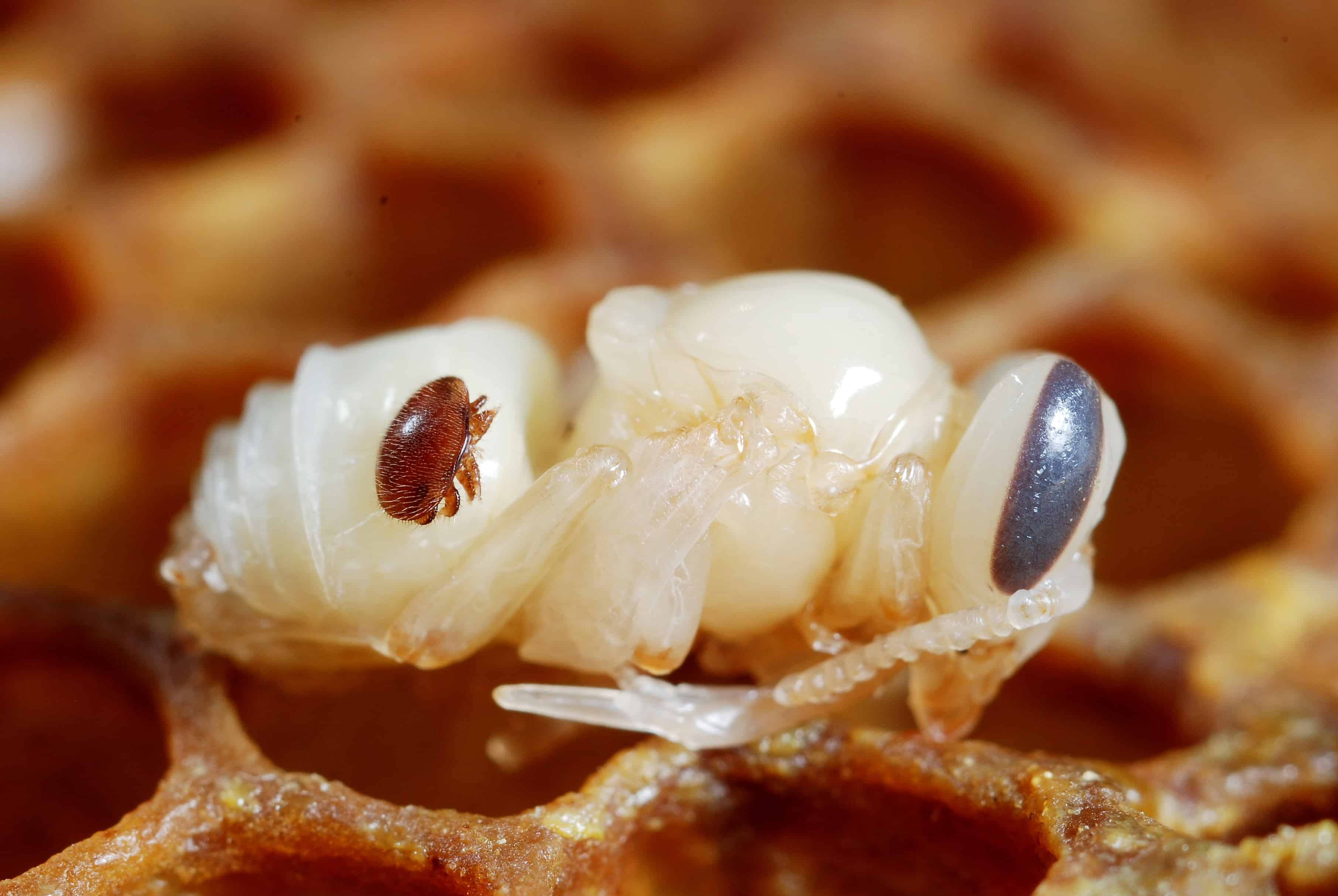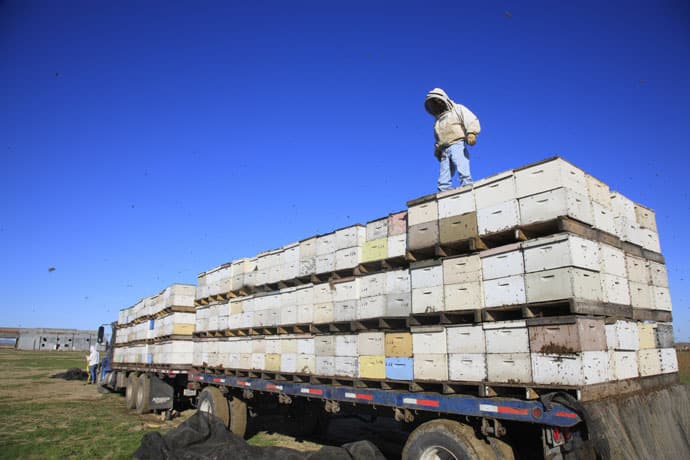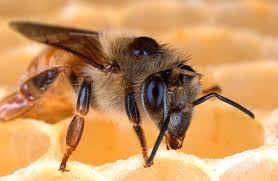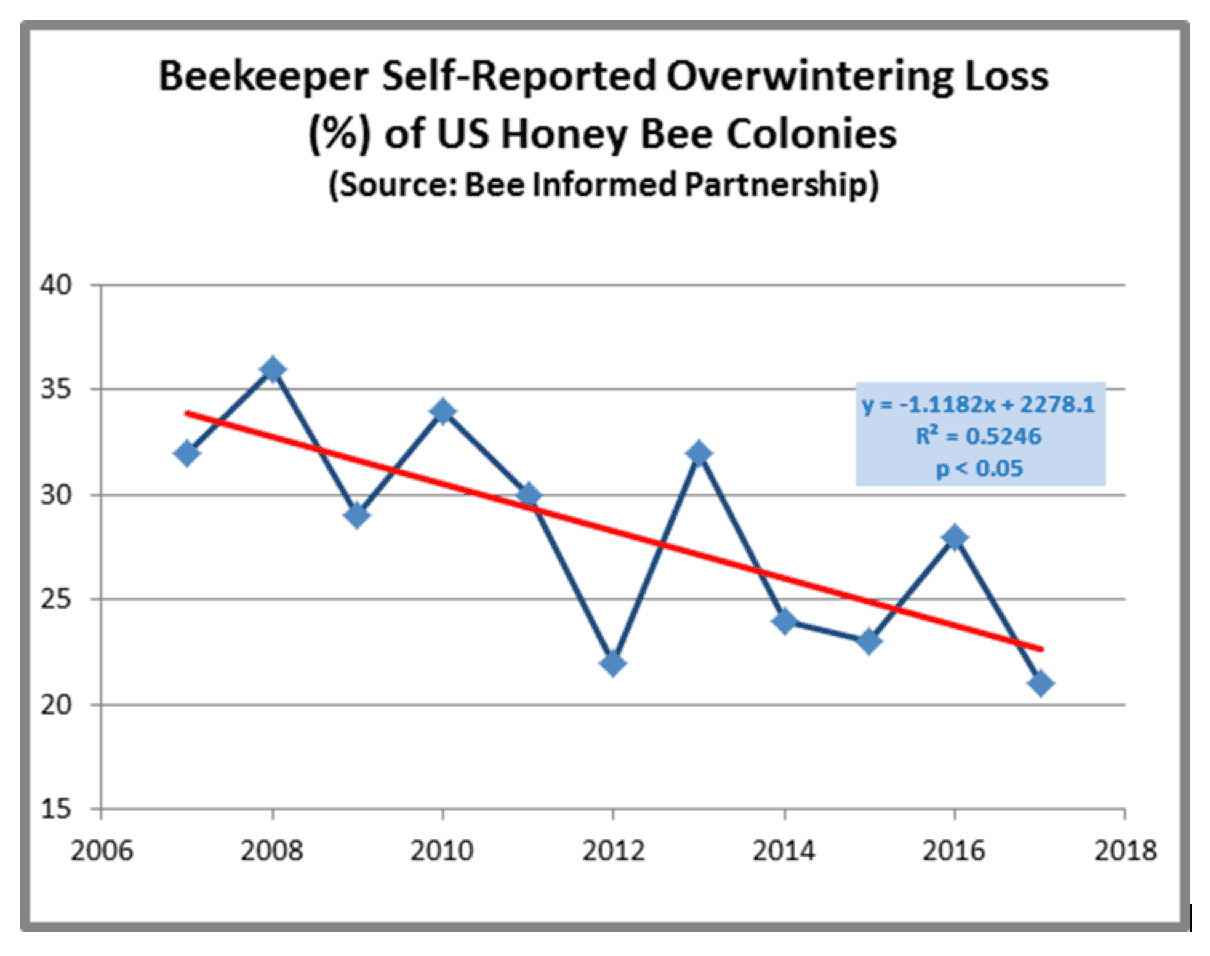The 6 reasons for bee extinction
Watch this video by Kurzgesagt
Why are we facing bee extinction?
Robert Owen, author of The Australian Beekeeping Handbook, argues that human activity is a key driver in the spread of diseases and parasites attacking honey bees, leading to bee extinction:
“Humans cause many of the problems which can only be solved by changes in human behavior.”
Meanwhile, scientific papers from researchers around the world confirm the following:
There is no singular cause being responsible for the death of bees. We have to look into the interaction of multiple causes.
Still, habitat loss has been determined to be one of the major reasons for bee extinction1.
Let’s discover the reasons for extinction and find out why there is no “silver bullet” solution.
Click on the buttons to read more about the most important reasons for bee extinction:

Modern farming methods
Monocultures and flowerless landscapes induce habitat loss.
The use of pesticides adds poisonous reside to crops and beehives, thus challenging the health of honey bees and pollinators.

Bee diseases and parasites
Varroa destructor and other mites and parasites weaken our bees and are a significant factor for colony loss.

Beekeepers’ practices
Some of the common practices for commercial beekeeping weaken the bee colonies and induce a lack of defense against diseases and parasites.

WiFi
WiFi consists of electromagnetic radiation. Since bees navigate with the help of magnetic bars in their bodies, some researchers believe that radiation disturbs the bee’s sense of orientation.

New predators
The newly arrived Asian hornet in Europe represents a serious threat to local pollinators, mainly honey bees.

Climate change
The in weather patterns can have an impact on honey bees and other pollinators at diverse levels.

Honey bee loss in numbers
Learn more about the decreasing numbers of honey bees worldwide.
